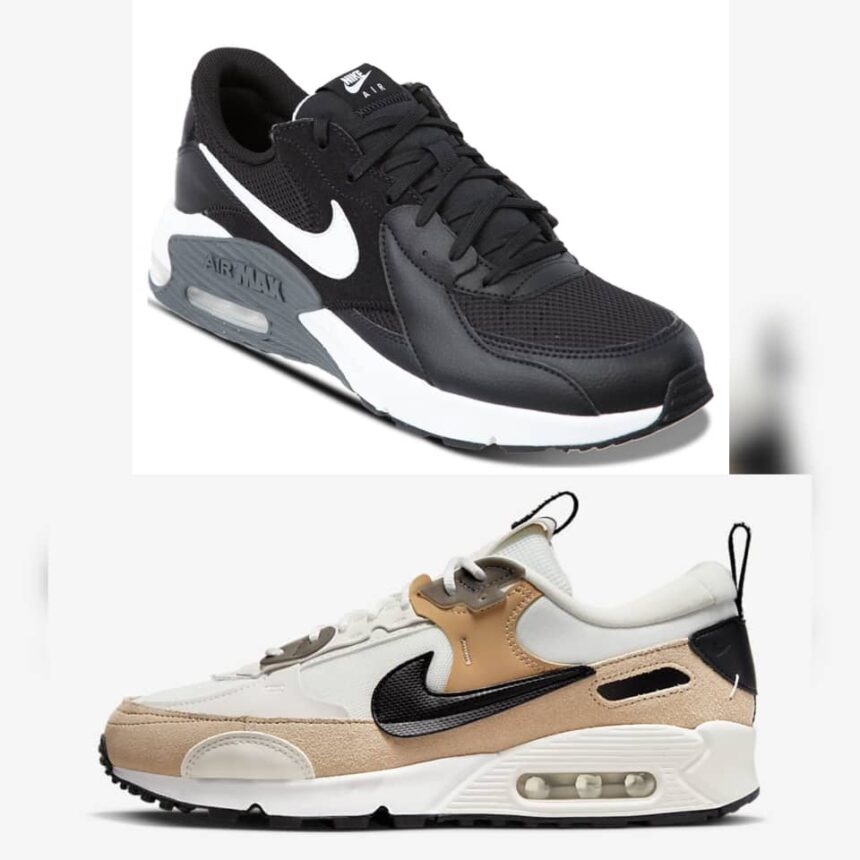Weeks after rival Adidas warned it would have to increase product prices due to US tariffs, Nike plans to raise the price of some trainers and apparel starting on June 1.
The sportswear behemoth claimed it frequently made “price adjustments” but did not specifically attribute the increase to US tariffs.
Nearly all of Nike’s products are produced in Asia, which is the target of tariffs imposed by President Donald Trump. Higher so-called “reciprocal” tariffs have been put on hold by the US until July, but a 10% “base” levy is still applied to a number of nations.
Almost always, the company importing the goods into a country pays the tariffs, not the company producing the goods.
Importers have the option of passing the additional tax on to the customer or choosing to absorb it themselves.
The majority of Nike shoes that cost more than $100 (£74.50) will see price increases of up to $10 starting on Sunday, June 1. Additionally, there will be a $2–$10 increase in the price of apparel and equipment.
In response to the price increases, Nike stated: “We regularly evaluate our business and make pricing adjustments as part of our seasonal planning.”
In March, Nike’s finance chief, Matt Friend, told investors over the phone that the company was
“Navigating through several external factors that create uncertainty in the current operating environment” tariffs included.
In addition, he stated that Nike was keeping an eye on “the impact of this uncertainty and other macro factors on consumer confidence”.
Nike has been contacted by the BBC to find out if the most recent price increases will only be implemented in the US or abroad. Shoes under $100 and Nike’s well-known Air Force 1 trainers will not be affected by the price increases.
Products for children as well as clothing and accessories bearing the Jordan brand will not be accepted. Last month, Adidas stated that Trump’s levies would raise the cost of well-known trainers like the Gazelle and Samba in the US.
According to UK sportswear retailer JD Sports, tariff-related price increases in its major US market could reduce consumer demand on Wednesday.
Businesses worldwide are struggling with the unpredictability of the trade policies of the Trump administration.
As nations from all over the world negotiate with the White House, a number of high “reciprocal” tariffs that were announced on April 2nd have been put on hold.
Products from China, Vietnam, Indonesia, and Thailand all of which produce shoes for American corporations will be subject to some of the highest import duties in the US, ranging from 32% to 54%.
The base 10% tariff is still in effect even though the 90-day pause is scheduled to end in early July.
The largest Nike product manufacturer is by far Vietnam. According to the company, 26% of its apparel and 50% of its footwear were made in Vietnamese factories during the most recent fiscal year.
Nike also uses companies in Cambodia, Indonesia, and China to produce its goods. Vietnam’s primary industry is manufacturing for foreign companies, and Trump imposed one of the highest reciprocal tariffs on the nation—46 percent.
Eric, the son of the US president, is travelling to Vietnam this week, just days after the Vietnamese government authorized a plan by the Trump Organization and local company Kinh Bac City Development to invest $1.5 billion in luxury real estate, hotels, and golf courses.
In Ho Chi Minh City, the Trump Organization is also looking for potential sites for a Trump Tower. Additionally, Nike announced that, for the first time since 2019, it would sell goods directly to Amazon in the US.
As part of a strategy implemented by its then-CEO John Donahoe, Nike ceased listing its products on the platform six years ago in favor of concentrating on its official website and physical stores.
Nike’s internet sales, however, have been declining. According to Nike’s latest data for the three months ending in February, digital sales fell in every region where the company sells its products, with Greater China experiencing a 20% decline and Europe, the Middle East, and Africa experiencing the biggest 25% decline.
Nike brought back former senior executive Elliott Hill to take over the company’s operations from Mr. Donahoe late last year because the company’s overall revenue has been dropping.
The US, China, and the UK will be the main targets of Mr. Hill’s current Nike turnaround.
By Najat Adamu






